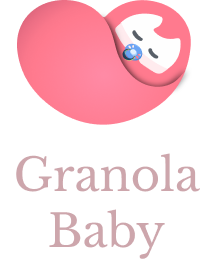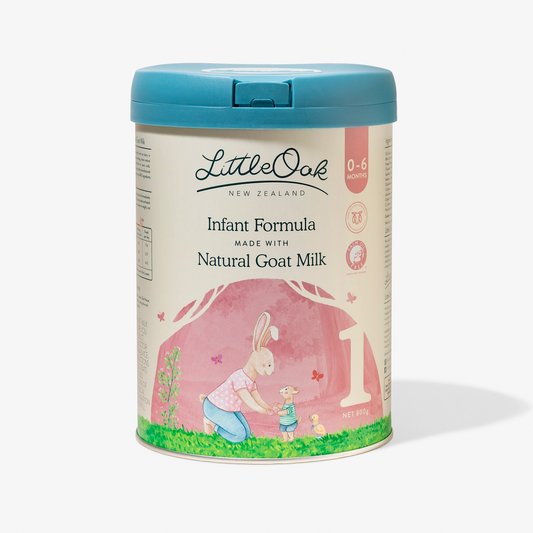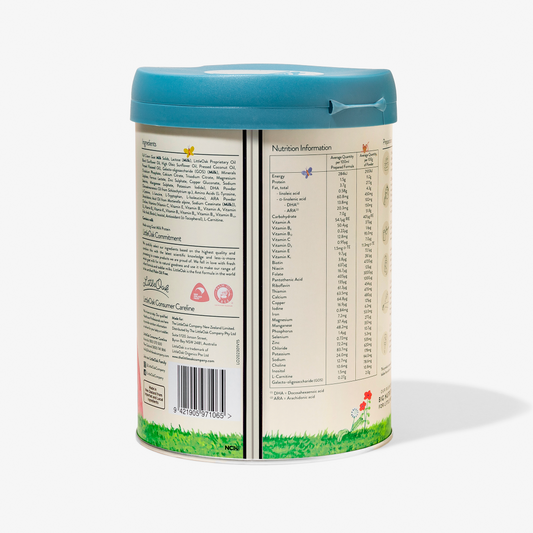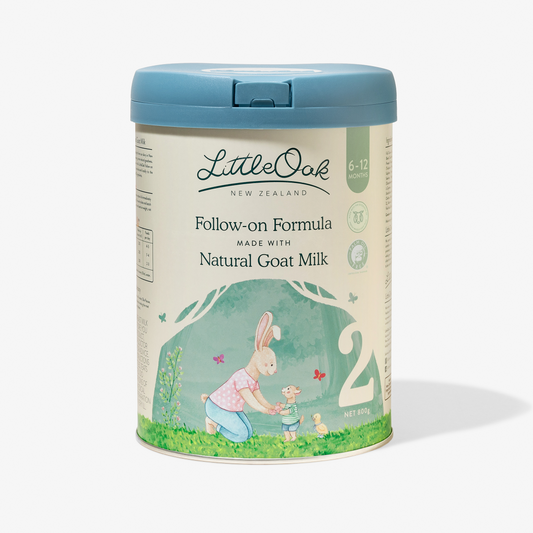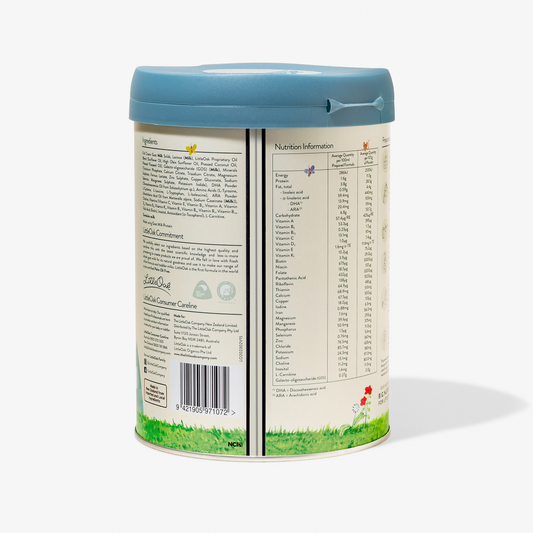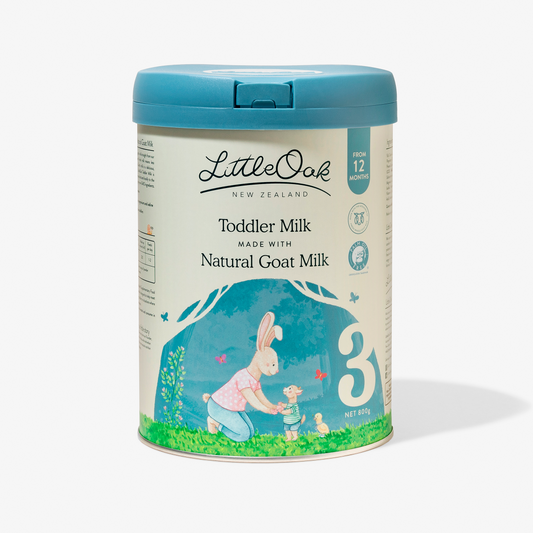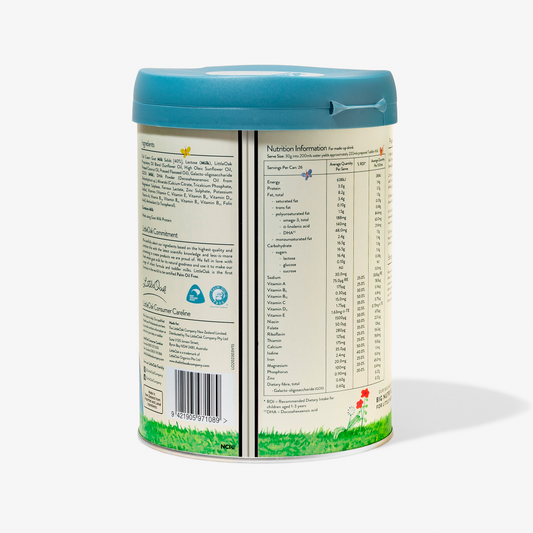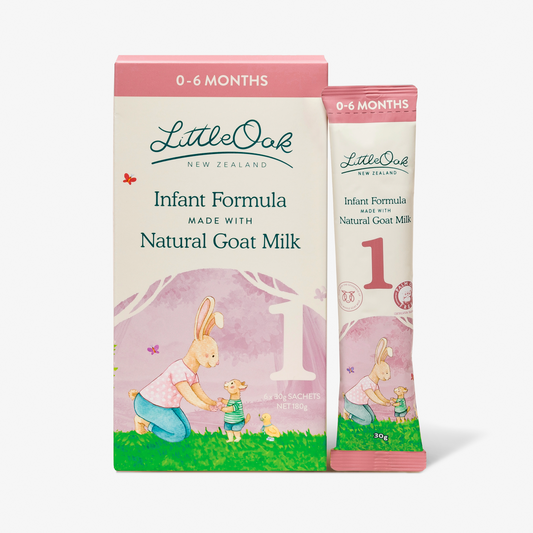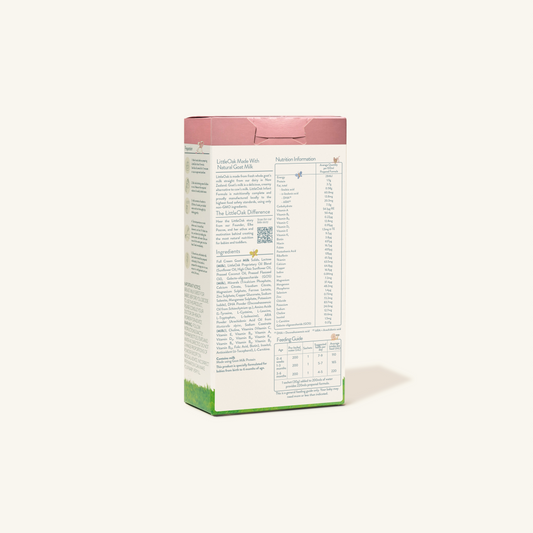
Best Organic Baby Formulas, Tried & Tested
Best Organic Baby Formulas, According to Pediatricians and Parents
Editor's note: Because of supply chain issues and recalls, formula shortages are affecting many families. For advice on switching and which formulas are currently in stock, see our article Coping With the Baby Formula Shortage? Here's How to Swap Brands.
Choosing the Best Organic Baby Formula: A Guide for Modern Parents
Choosing the best formula for your baby can feel like one of those "weight of the world" decisions as a new parent. You want the most nutritious option for your little one's body and brain, but you also don't want to upset their tummy.
If you’re committed to an organic lifestyle, the task can feel even more challenging, since most baby formulas aren’t crafted with certified organic ingredients. Thankfully, if that's what you're looking for, some of the most trusted names in the industry have developed organic baby formula options.
What is Organic Baby Formula?
Organic baby formula comes from milk products produced without using pesticides, herbicides, antibiotics, or growth hormones. While conventional formulas may meet some of these qualifications, organic baby formulas are made exclusively with organic milk and organic ingredients, explains Tina Feeley, M.D., a pediatrician and member of the What to Expect Medical Review Board based in Chestnut Hill, Massachusetts.
According to the U.S. Department of Agriculture (USDA), organic products must be made using certain production standards, such as minimizing the use of synthetic materials and maintaining and improving soil and water quality. Products have to be made with substances approved by the USDA — and they have to be produced without any prohibited methods (think genetic engineering, for instance). All products are overseen by an agent authorized by the USDA National Organic Program and must follow all USDA organic regulations.
Are Organic Formulas Better for Babies Than Conventional Options?
Steven Abelowitz, M.D., F.A.A.P., a pediatrician and regional medical director of Coastal Kids Pediatrics in Newport Beach, California, says that while there are theoretical benefits of organic formula (such as the absence of growth hormones, genetically modified ingredients, and pesticides), research doesn’t show a clear, long-term health advantage to using organic formula over conventional. When looking at outcomes of babies who were served organic versus conventional formulas, the benefits are “quite slim,” he says.
The price tag also tends to be higher for organic formulas, Dr. Abelowitz notes. “I always say for parents, if the cost is not inhibitive… then having that theoretical benefit of non-organic versus organic could be a consideration that parents want to take into account,” but again, only if the prices of organic formula fit your budget.
Dr. Feeley recommends thinking about why you would like to use organic formula. If it’s because organic foods are an important part of your household’s approach to eating, then a certified organic formula will likely be the best fit for you. But if you’re looking for something specific in a formula — like no growth hormones in milk, for example — you could look for either an organic or conventional formula that doesn’t have any hormones.
Beneficial Nutrients in Baby Formula
While each formula is different, both organic and conventional picks often include nutrients that are beneficial to your baby, such as:
- DHA (docosahexaenoic acid) and ARA (arachidonic acid), which help baby’s brain, vision, and immune responses grow.
- Lutein, which helps baby’s eyes develop.
- Prebiotics, which are designed to support immune and gut health. A common prebiotic you’ll notice on formula labels is HMO, aka human milk oligosaccharides, which are found in breast milk. The verdict is still out on whether or not prebiotics make a big difference for your little one, but they’re not thought to hurt, says Dr. Feeley.
As always, talk to your pediatrician about what matters for you when deciding on a baby formula (organic or not) and they can help you decide.
Types of Organic Baby Formula
If you select an organic formula for your little one, note that there are a few main types:
- Milk-based: As you might expect, milk-based formula is made with cow's milk — it’s just been altered to more closely resemble breast milk and provide the right balance of nutrients for infants. This is the most common type of formula, for both organic and conventional picks.
- Partially hydrolyzed: These formulas have milk proteins which have been partially broken down, which may help babies that struggle with colic or gas, for instance.
- Soy-based: These formulas are made from soy proteins and are often used in place of milk-based formulas. The AAP recommends that soy-based formulas only be used in rare situations, so don’t use one unless your pediatrician recommends you do so.
How to Choose the Right Organic Baby Formula for You
It can feel confusing trying to select an organic formula that’s right for your family. Take comfort in knowing that all baby formulas sold in the U.S. must meet firm regulations from the Food and Drug Administration (FDA), so any brand you choose will meet essential safety requirements.
That said, here are some other things to do when you’re narrowing down on a formula:
- Consult with your baby’s pediatrician. Your doctor may have more experience with some formulas versus others, in addition to knowing your baby and your family’s wishes, says Dr. Abelowitz. They can help you make an informed decision.
- Look for a USDA Organic seal. These products are certified to meet USDA organic regulations, which specify what ingredients and production methods are allowed. If the formula does not have that seal, you’ll likely see one from a USDA-accredited certifier in its place that says “made with organic…” This means the formula is made with at least 70 percent organically produced ingredients, but not necessarily all organic ingredients.
- Look for helpful nutrients on the ingredients list. Think of the ingredients we listed above: DHA, ARA, and lutein, for instance, which are essential for your baby’s mental and visual development. As mentioned earlier, some formulas will also include prebiotics for immune and gut health.
How We Made Our Picks for the Best Organic Baby Formula
Here’s how we picked the best organic formulas to highlight:
- We made sure every formula on this list is USDA-certified organic.
- We spoke with three leading pediatricians — Dr. Abelowitz, Dr. Feeley, and Dr. Poinsett — to get their expert input on all things organic formula. We also followed guidance from top health organizations such as the AAP and USDA.
- We combed through recommendations from members of the What to Expect community, plus asked our staff, to see what their families have tried and loved.
- We read through online reviews of each formula to hear the experiences of countless parents and caregivers who tested them.
Ready to dive in? Below, the best organic baby formulas.
What to consider when buying baby formula
-
Carbohydrates
Experts say most babies do well on formula with lactose (the same sugar in human milk) as the sole carbohydrate
-
Protein
Protein in formula can be either intact or partially or fully broken down, which may be easier for some babies to digest
-
Extra ingredients
All baby formulas must meet the same basic nutritional requirements. Some include extra nutrients like DHA, ARA, and prebiotics
-
Organic
Organic products are important to both adults & babies, especially when choosing between dairy-based formula from cow or goat milk
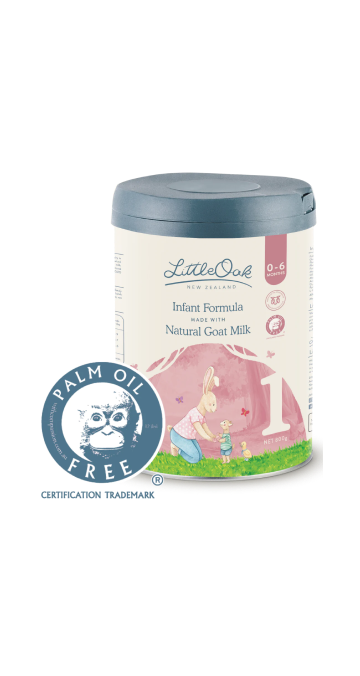
Granola Baby's #1 Organic Formula Choice
1. LittleOak
LittleOak is our #1 choice of formulas sourced and made wholly with organic ingredients. The brand adheres to a stricter European guideline for their formulas, meaning less processing and more natural ingredients. LittleOak products are designed to meet the dietary needs of growing little ones and are boosted with 16 essential vitamins and minerals. The formulas are made with fresh whole goat milk straight from dairy in New Zealand, packed with A2 proteins and boasts the world's first certified palm-oil free formula. These all make LittleOak's formulas safe and easy for gassy babies. LittleOak is the all-around best choice for nurturing and growing your little ones from birth to 4 years of age.
Key Product Info:
- The world's first approved palm oil free baby formula
- Made from organic whole goat milk
- Packed with 16 essential vitamins and minerals
- Highest concentration of naturally occuring A2 proteins
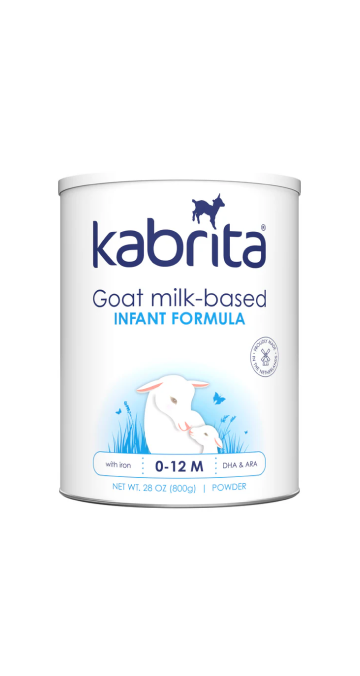
Made with strict EU guidlelines
2. Kabrita
Kabrita Goat Milk Infant Formula is a gentle and nutritious alternative to cow's milk-based formula, specifically designed to meet the nutritional needs of newborns and infants up to six months of age. Made with high-quality non-GMO goat milk, this formula is naturally easy to digest and gentle on little tummies, making it a great choice for babies with cow's milk sensitivities or digestive discomfort.
- Unique oil blend. Shown to promote more healthy bacteria in the gut, reduce colic and gas, reduce constipation, and allow for better absorption of fat and calcium.
- No GMO ingredients added under EU regulations
- Good carbohydrates & fats to match breastmilk
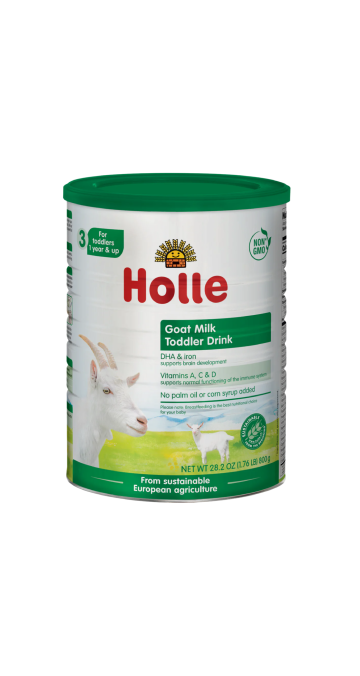
Best Cow Milk Option
3. Holle
Sourced from Demeter farms with the highest European organic certification, Holle guarantees clean ingredients for your little one's nourishment. With various stages tailored to support infants from newborns to 12+ months, Holle ensures continuous support for your baby's growth and development.
Key product info:
- Certified organic ingredients sourced from biodynamic farms, ensuring the highest standards of purity.
- Smooth texture and natural taste reminiscent of breastmilk, making it a favorable choice for infants.
- Free from starch, suitable for newborns up to 6 months, providing gentle nourishment for delicate tummies.
- Numerous testimonials affirm smooth transitions and enhanced comfort for babies, with reduced instances of spit-up and digestive discomfort, solidifying Holle's reputation as one of the best organic formulas on the market.
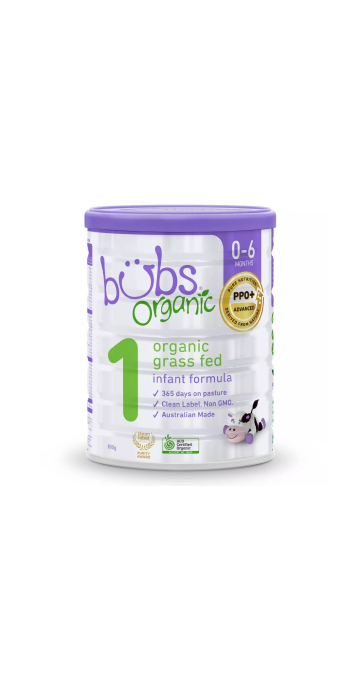
Affordable Pricing
4. Aussie Bubs
Aussie Bubs is a well known baby formula brand that focuses on sourcing organic ingredients. Their formulas are created without additives like palm oil, corn syrup, and added sugars, ingredients that can lead to gassy and sensitive stomachs. In terms of its protein source, Aussie Bubs is also milk-based, though the brand uses organic whole fat cow’s milk from cows in Australia that graze outside 365 days a year. With a manufacturing process that's aimed at being organic, Aussie Bubs formulas are a perfect solution to help parents switch to something that can help with gassy babies.
Key Product Info:
- First 1,000 Days and Clean Label Certified
- Naturally occurring A2 protein is easy to digest
- Perfect for toddlers with sensitive tummies.
In conclusion...
In our quest to identify the most suitable formula options, we focused on cost-effective selections that offer supplementary advantages beyond meeting basic nutritional requirements. Our approach involved extensive consultations with experts and a thorough review of over a dozen scientific sources, including studies, journals, reports, and advancements, to gain insights into formula composition, nutrients, and related components.
It's recognized that both traditional and organic formulas should contain lactose as the exclusive carbohydrate source. Given lactose's natural presence in mammalian milk and its role as the primary energy provider, formulas strive to emulate human milk as closely as feasible. According to infant feeding specialists, opting for formulas with lactose as the sole sugar is preferable. The majority of healthy infants typically tolerate lactose well, and there is scant evidence indicating that reducing lactose or opting for lactose-free formulas alleviates colic symptoms. Hence, formulations marketed as "sensitive" and devoid of lactose were not considered within our assessment.
Our investigation also delved into regulatory frameworks established by the FDA and CDC governing the production and testing of formula within the United States. Furthermore, we meticulously scrutinized the nutrition and ingredient labels of approximately 50 formulas to discern their variances and resemblances.
Our Featured Baby Formula
Made from fresh whole goat milk, our beautiful baby formulas and toddler milk support gentle digestion for little tummies - with less processing and more natural goodness. Goat milk is a rich source of nutrients with naturally occurring A2 casein, oligosaccharides and prebiotics.
-
LittleOak Stage 1 Natural Goat Milk Infant Formula (0-6 months)
Vendor:LittleOakRegular price $52.95Regular priceUnit price / per -
LittleOak Stage 2 Natural Goat Milk Follow-on Formula (6-12 months)
Vendor:LittleOakRegular price $52.95Regular priceUnit price / per -
LittleOak Stage 3 Natural Goat Milk Toddler Drink (12+ months)
Vendor:LittleOakRegular price $52.95Regular priceUnit price / per -
LittleOak Stage 1 Natural Goat Milk Infant Formula Sachet (0-6 months)
Vendor:LittleOakRegular price $19.95Regular priceUnit price / per
